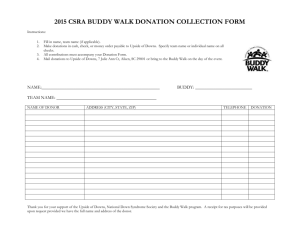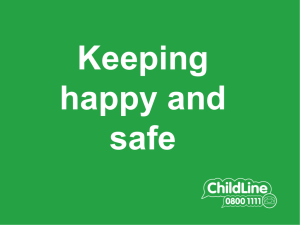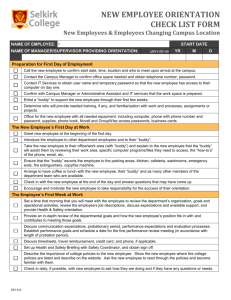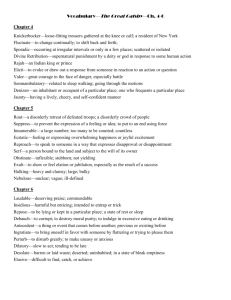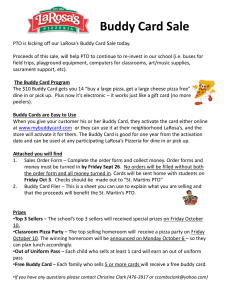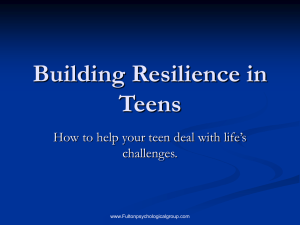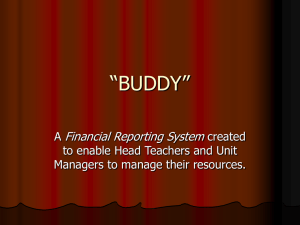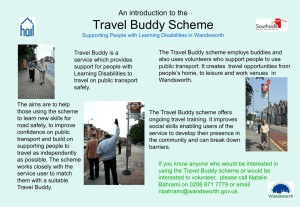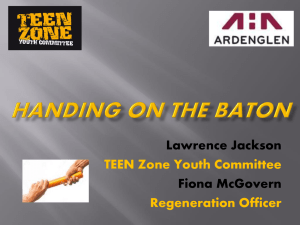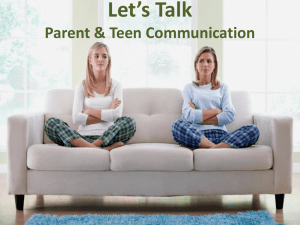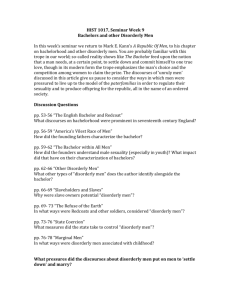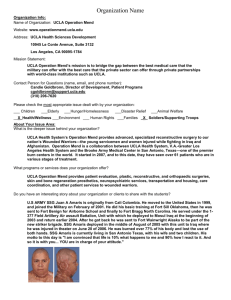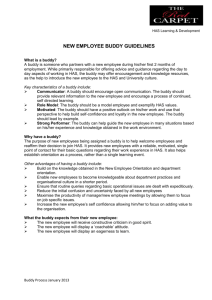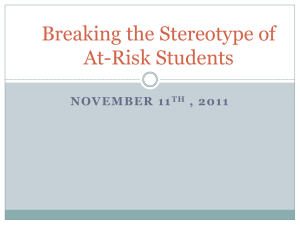PowerPoint Presentation - STAYING SAFE ON THE INTERNET
advertisement
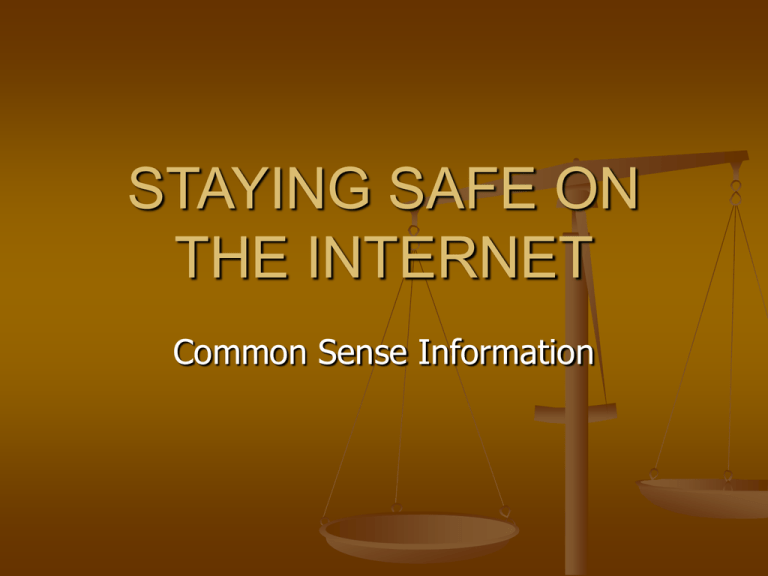
STAYING SAFE ON THE INTERNET Common Sense Information The First Question When I’m on line I should never give out: A. B. C. My last name, address, phone number, the name of my school, or teams I play for The names of my pets The names of my favorite book or TV shows The Correct Answer is A Never Give Out : Your name Your address Your phone number Your birthday Your school name Any other personal information EVERY TIME YOU ENTER INFORMATION YOU GIVE UP PRIVACY Question 2 Before I buy something online or access a site requiring payment I should: A. B. C. First make sure I really want it Check with my parents Check out store prices first. The Correct Answer is B Question 3 It’s OK to give someone by password. True False The correct answer is of course False. Passwords are: Valuable pieces of information Can allow someone to access your Email Allow access to you AOL account to charge products sold on the Internet No legitimate website or person would ever quest them. Question Four I can send a photo of myself online when: A. B. C. It’s to a friend or family member I’ve told my parents and they’ve given me permission to do so It’s to my cyber friend The right answer is B Question #5 If someone I meet online gives me his phone number I should: A. B. C. Call him right away. Give him my phone number also Ask my parents permission before I call The answer is C Question #6 I should never respond to Email messages from people or organizations I’m not familiar with. True False Obviously the correct answer is true Dangers are: The Email may be a scam to sell you something If you respond you are confirming a valid Email address You can encourage the sender to forward inappropriate Emails or add you to other lists Question #7 Photos can be downloaded from the internet when: A. B. C. They’re from a cyber friend It’s in your Email My parents give me permission to do so The correct answer is C Question #8 If someone send me an inappropriate message or materials I should immediately: A. B. C. D. Not reply to it and save it Tell my parents Contact my service provider All of the above The right answer is D Question #9 If someone I’ve met online wants to meet in person I should: A. B. C. Never consider doing so before talking to my parents about it Tell my best friend and take her with Keep it a secret Of course the right answer is A Question #10 Who Developed the Internet? A. B. C. Bill Gates from Microsoft The U. S. Government A man from the Netherlands named LINUX The answer is B The Final ?? Any information you get on the internet is trustworthy. True False The answer is definitely False. Family Contract For Online Safety Kids Pledge 1. I will not give out personal information such as my address, telephone number, parents’ work address/telephone number, or the name and location of my school without my parent’s permission. 2. I will tell my parents right away if I come across any information that makes me feel uncomfortable. 3. I will never agree to get together with someone I “meet” online without first checking with my parents. If my parents agree to the meeting, I will be sure that it is in a public place and bring my mother or father along. 4. I will never send a person my picture or anything else without first checking with my parents. 5. I will not respond to any messages that are mean or in any way make me feel uncomfortable. It is not my fault if I get a message like that. If I do I tell my parents right away so that they can contact the service provider. 6. I will talk with my parents so that we can set up rules for going online. We will decide upon the time of day that I can be online, the length of time I can be online, and appropriate areas for me to visit. I will not access other areas or break these rules without their permission. 7. I will not give out my Internet password to anyone (even my best friends) other than my parents. 8. I will be a good online citizen and not do anything that hurts other people or is against the law. I AGREE TO THE ABOVE: ___________________________________ Child Sign Here I will help my child follow this agreement and will allow reasonable use of the Internet as long as these rules and other family rules are followed. ________________________________________ Parent(s) Sign Here _________________________________________ Contract Time A contract is used when you suspect your teen is being inappropriate online or violating your home rules. If your teen violates your contract it is automatic revocation of privileges for your determined period of time. Have them sign it. Hang this on the refrigerator. Some Examples of violations: If your teen does not know full information of his buddy. If they X out when you come into the room. If they tell you “you can’t see this it’s private.” If your teen is up late at night past bed time. If they receive money, gift certificates, cameras or scanners that they can’t explain. What is a Buddy List? When looking at your child’s Buddy List your child should be able to tell you who each person is by the screen name. A Buddy List is a list in AIM, AOL, and Yahoo of the common or frequent contacts your child has. If they don’t know them by first, last name and phone number, they should not be on the buddy list. If you don’t know that person neither should they. Some kids lie about who that person actually is and they make it up. Check the Screen names yourself to call their bluff. Why is my teen’s cell phone bill so high? When teens are banned or away from the computer, they use text messaging to IM friends who are on the computer. This is when they could speak to someone you do not want them to talk to. You can check the cell phone account on line and see who they are talking to. Just sign into the cell phone provider online and check the in box and out box. Electronic Harassment Disorderly Conduct Electronic Harassment Disorderly Conduct Includes the use of electronic communication for any of the following purposes: 1. 2. 3. Making any comment, request, suggestion or proposal which is obscene with the intent to offend Interrupting phone service with the intent to harass Transmitting any file, document, or other communication which prevents a person from using their telephone or e-comm device. Harassment… continued Threatening injury to person or property of the person receiving the e-comm or family or household members 4. • • • • Examples: Enlisting the operator to break into a phone conversation. Any form of electronic communication that alarms and/or disturbs the receiver (like disorderly conduct) Email bombs or sending consecutive messages that cause denial of service (DNS) Any forms of threats toward a user or those related to them Cyber-Stalking A person commits cyber-stalking when he/she knowingly and without lawful justification on at least 2 separate occasions, harasses another person through the use of electronic communication and: At any time transmits a threat of immediate or future bodily harm, sexual assault, confinement or restraint and the threat is directed towards that person or a family member of that person. Places that person or a family member of that person in reasonable apprehension of immediate or future bodily harm, sexual assault, confinement or restraint. (Class 4 Felony) Empower Yourself and The Parents Lets work together to keep our kids safe. This is not a matter of violating their privacy. The parents are responsible for their children. We need to guide them in good times and in bad. It is not that they are doing bad things. They do not have enough experience to handle adult type situation. They really have not been here as long as we have!

